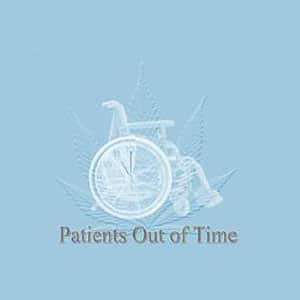The mountain went to Mohammed as the seventh National Clinical Conference Conference on Cannabis Therapeutics was held last weekend in Tucson, Arizona by Patients Out of Time (POT). Tucson is home to the Arizona Center for Integrative Medicine, founded by Dr. Andrew Weil, and he spoke at the event.
Weil is the best-selling author of Spontaneous Healing and a world-renowned leader in integrative health. Back in the 1960s, he studied with ethnobotanist Richard Schultes at Harvard, and marijuana was one of his research topics.
Weil’s book Marriage of the Sun and Moon explores different psychedelic adventures, including feasting on mangoes. His The Natural Mind is a must-read for a broader look at the topic of consciousness, and his From Chocolate to Morphine is by far the best book for parents and teens about different drugs and their effects.
As Weil has become more mainstream, so have his attitudes. In his new book, Spontaneous Happiness, Weil seems not to understand the simple difference between sativa and indica strains of cannabis, saying something he reiterated at the conference: that marijuana was hard to recommend because people have different reactions to it. He says in his book that those who are struggling with depression might consider abstaining from marijuana for the duration of the program he recommends there.
At the conference’s final panel, chaired by Clint Werner, author of Marijuana, Gateway to Health, Weil appeared with researcher Melanie Dreher and Julie Holland, editor of The Pot Book. Weil was thanked for contributing blurbs to both book covers, thereby enabling them to reach a broader audience.
Dreher, an RN and PhD, was credited with helping getting the POT conferences started, by securing academic accreditation for the first one. “There was a time when funding in the US was available for studies on marijuana,” Dreher said, mentioning her NIDA-funded study on children in Jamaica, and her March of Dimes-funded study of mothers and children there. “Now we are fortunate that other countries have stepped forward,” she added, noting that researchers were at the conference from Spain, Italy, Sweden and elsewhere.
“The issue is not about science, it’s about living in a Puritain/Protestant society more interested in productivity first and not big on pleasure,” she said. “We apologize all the time for the positive psychoactive effects of cannabis to the same medical establishment that prescribes anti-depressants more than anything else.” She harkened to Florence Nightingale’s definition of nursing, “Helping people to live well.”
Dreher said hardly a month goes by when she doesn’t hear from a frantic parent or their lawyer about a child custody case involving marijuana. But she happily reported that three radio interviews she is doing on the topic will air on Mother’s Day shows.
Dr. Julie Holland, a psychiatrist practicing in Manhattan, appeared on The Today Show with Matt Laurer to talk about cannabis. She is donating profits from The Pot Book to clinical research. She said that humankind has a relationship with the cannabis plant and that cutting it off is pathological. Big Pharma would rather treat the symptoms of disease rather than cure it, and in a country where 1/4 of the children are on some kind of drug and 1/5 of women are on anti-depressants or some kind of anti-anxiety or sleeping pill, we need to rethink our approach.
Holland mentioned the talk by Sue Sisley, MD, whose FDA-approved study on cannabis for veterans with PTSD has been held up by NIDA for a year. Our veterans are seeing more psychological casualties than physical ones, and there is a 25:1 ratio of suicides to battlefield casualties among our vets, she said.
“Our drug policy is making us act like junkies,” Holland said. “We can model healthy behavior for our children when we have just a glass of wine with dinner, but we can’t do that when we’re hiding our use.”
In studying a psychotropic agent, it was noted at the conference, researchers have discovered an entirely novel biological regulatory system, the endocannabinoid system. This explains why cannabis is active in so many areas of the body and mind, and should silence critics who say marijuana merely makes people forget their medical problems.
Weil said that at his Arizona Center for Integrative Medicine, all students get basic information about medical cannabis, but that most physicians know nothing about the endocannabinoid system. The population is sharply divided, with fear and prejudice rampant, he said, adding that we are moving towards full legalization but it will be a rocky road to get there.
“It’s hard to imagine a plant more useful than cannabis,” Weil said, mentioning fiber, seed and medicine. It’s foolish to let our fiber come from China, and our oil from Canada. “It’s dumb to grow cotton in Arizona,” he said. “Hemp could be much better.” In excluding cannabis as a medicine we are extra foolish, he said, adding, “If Sativex were available I would be prescribing it a lot.”
Weil listed appetite stimulation, analgesia, less-toxic treatment of seizures and muscle spasms as having promising potential for cannabis treatments. He also mentioned MS, which cannabis may put into remission, and quality of life for cancer patients, as well as the possibility of arresting cancer. ALS or Lou Gehrig’s disease, which was a topic at the conference, should also be explored, he said, as well as the prevention of AIDS-related dementia.
One very promising possibility is the modulation of hunger and satiety with cannabis. He said he had just returned from a conference on obesity, and that the latest research on that topic is depressing. Modulation of the insulin system and others are necessary to make progress, and the endocannabinoid system could play a role.
“I thought in 1968 marijuana would be legal in five years,” Weil said. “I did not understand the deep-rooted irrationality.” We need to accelerate a cultural change. “Cannabis, like dogs, made a decision to throw in their lot with us,” he said, “and we have not in this culture been very wise about how we have responded to its overtures.”
Weil advised the medical marijuana movement to work towards presentations at mainstream medical conferences like the American Psychiatric Institute and the American Cancer Society.
Videotapes of the POT conference will be available in the coming weeks through MedicalCannabis.com
Find out more about the National Clinical Conference Conference on Cannabis Therapeutics.
Ellen Komp is Deputy Director of California NORML and a regular contributor to Cannabis Culture. She manages the website VeryImportantPotheads.com and blogs at Tokin Woman.
Article Originally Appeared In Cannabis Culture and republished with special permission








